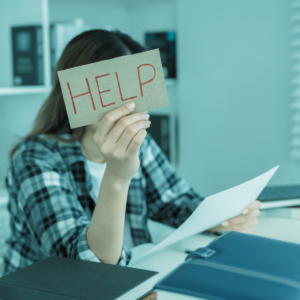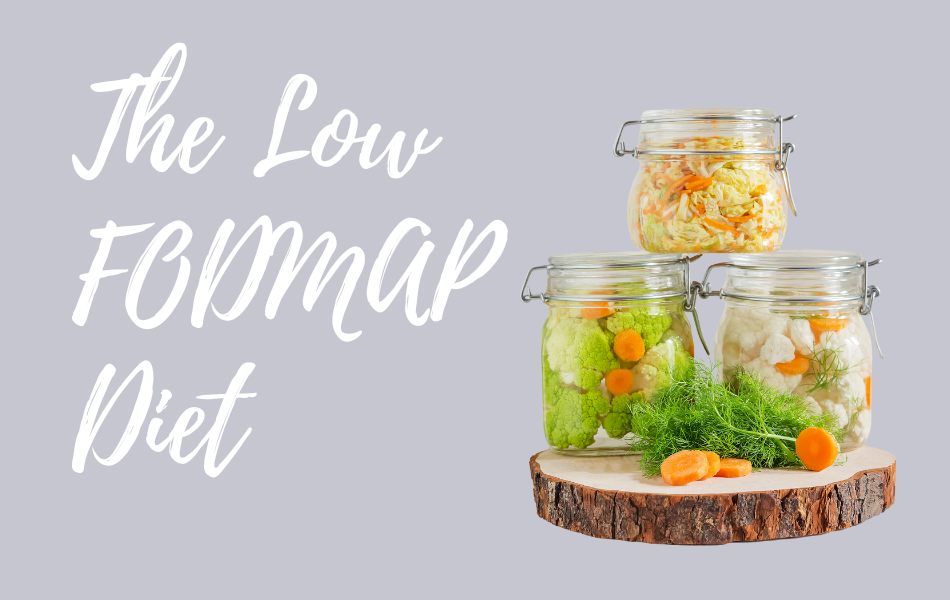Let’s talk about the Low FODMAP diet.Why it rarely works. And why it can actually make things worse for people with IBS. Over the past 10 years, I’ve seen so many clients try this (some almost in tears telling me about it) so let’s unpack why it’s not always the miracle solution it’s sold as.
What is The Low FODMAP Diet?
The Low FODMAP diet came about around 2008 from Monash University in Australia.
On paper, it sounds clever. You cut out certain fermentable sugars that can upset your gut, then slowly reintroduce them to see which ones trigger symptoms.
FODMAP stands for:
-
Fermentable
-
Oligosaccharides
-
Disaccharides
-
Monosaccharides
-
And
-
Polyols
Basically, these are different sugars and sugar alcohols (like sorbitol, mannitol, xylitol). Some are naturally in fruit in tiny amounts.
The idea is that these sugars ferment in your gut and mess with your microbiome. So you remove them for a bit, then test them one by one.
Sounds smart, right? But in real life – it rarely works.
Around 27% of my clients have come to me after trying it, feeling worse off than when they started…
Why it doesn’t work for most people
For starters, most people don’t actually need to cut out every fermentable food to see results. It’s like trying to fix a squeaky door by burning down the whole house.
It can also create real fear around food – especially healthy, natural stuff that was literally designed to feed us. Energy, fibre, nutrients – you know, all the good things.
And let’s be honest, the support for it is usually non-existent. NHS dieticians are lovely, but they’re underfunded and overstretched. They don’t always have time to help people beyond handing over the standard FODMAP booklet.
There’s also tonnes of conflicting info about what’s “allowed” and what’s not. I’ve seen people practically crying over garlic powder in a recipe..!
And worst of all? If you follow it too strictly or for too long, you can actually become malnourished. Yep. Making your IBS worse, not better.

What should you do if someone suggests FODMAP to you?
My advice? Be informed. Ask questions. Don’t just nod and go home clutching a giant list of banned foods.
Try asking:
-
What’s your success rate with this approach?
-
How many people have bad reactions to it?
-
What support do you offer?
-
What results can I expect?
-
What happens if it doesn’t work?
-
What’s the next step?
If you do try it, keep a symptoms diary. Don’t just take it on faith. Track what’s actually happening in your body.
What about our relationship with food?
Honestly, a bad relationship with food is like a car that refuses petrol. Food is fuel.
Without the right fuel, our organs don’t work properly. Our brain gets foggy. Concentration goes right out the window.
With IBS, it is easy to become fearful of food – this is relatively normal, although massively unhelpful when trying to heal the gut. In my mind, being scared of food ruins one of life’s greatest pleasures. And trust me, no one wants that!
And let’s not forget – food should be enjoyable! It should taste good. It should literally heal you while you’re eating it.
Quick food advice:
Processed foods, sugary snacks, takeaways. These are not your mate if you’ve got IBS – you already know the drill, right? Beyond that? It’s completely individual. What triggers you might be fine for someone else…
Case Study:
I had a call recently with a lovely lady who was at her wits end with IBS. We talked through her symptoms and found a couple of small, easy tweaks. A few weeks later she was symptom free!
She’s happier, her partner’s delighted, and her kids are thrilled to have their mum back – less irritable, more energetic, just… better.
Honestly, that’s the best bit of this job! I love helping people get their lives back…!
Book Your Free Gut Strategy Call
Book your Gut Strategy Call with me Right Here: https://helenwaddington.as.me/guthealthstrategycall
These calls? Sometimes the penny drops in the first 10 mins. Other times people realise they need a bit more help and support. Either way, you’re not on your own.
My awesome clients also get free coaching included in their program or online course, so they have all the help and support they need during, and even after we have worked together.
It’s this coaching that helps them achieve an incredible 85% to 100% reduction in their symptoms. Fast!
Free Help & Advice
Subscribe to my newsletter using the box below for free IBS and IBD tips, information, recipes and advice on how to stay gut healthy for life – straight to your inbox!

